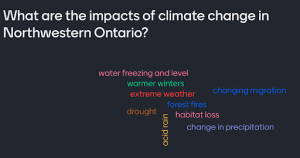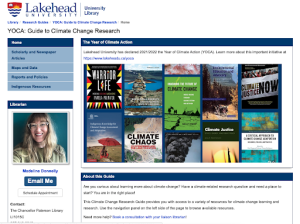The Technique
Do you find that students in your class struggle to find and evaluate information for their assignments? Effectively using the many different search tools and databases available can be a challenging task, let alone critically evaluating the information that these tools bring back.
In my role as a liaison librarian, I work in partnership with faculty to support information literacy* across the curriculum. This partnership often begins when there is a course assignment that requires students to find, evaluate and use information; this could range from a researched discussion post to a thesis or capstone project.
In these cases, I will design my session around class assignments and the research skills needed to complete them. For example, I may design a Library Guide with a curated set of resources relevant to the assignment, working with the instructor to identify challenges and restrictions around learning resources to be used.

On the day of the session, I facilitate an activity with the students using a library guide, a complex question, and discussion to launch a process of gathering strong resources.
* Information literacy refers to our ability to find, analyze and use different types of information. This being said, there are so many aspects to information literacy, from the construction of authority to the idea of scholarship as a conversation, I am always happy and excited to discuss how I can support your learning outcomes.
How I use It
The first step is to introduce learners to a big and complex question:
What are the impacts of climate change in Northwestern Ontario?
Next I’ll ask how we can break this question into smaller, researchable pieces. What do students already know about climate change and its impacts? Using tools like mentimeter we can collaboratively identify smaller, more targeted themes and concepts for searching.

“mentimeter to brainstorm impacts” by “Madeline Donnelly” is cc 4.0 licensed
Now we are ready to discuss approaches for searching by introducing the class to our YOCA: Guide to Climate Change Research Library Guide (curated selections of resources). How do the information formats on the left side of the page differ from one another? What types of questions are best answered by different types of information formats, and why?

YOCA: Guide to Climate Change Research by Madeline Donnelly is cc 4.0 licensed
This then leads to a discussion about the strengths and limitations of different information creation, review and publication processes. What does it mean for a source to be peer reviewed? How can certain publication processes exclude Indigenous voices, and how can we intentionally include these voices in our research process?
At this stage breakout groups (or breakout rooms) can search for information on our themes and concepts. Using the Library Guide, students can explore the different search tools and databases available to them. They must decide which tools best fit their information needs.
When we come back together the groups share what was found, strategies that worked (or didn’t), themes and concepts that were hard to find resources for, and how to adapt strategies to find them.
Feedback from Learners
“I loved it! I loved how you gave examples that were specific to our course to showcase how each search strategy is useful”
“Very helpful presentation, I’ve never used the Lakehead library site before but now that I know, I can find better research articles that fit the topic to write assignments”
“I found the presentation very helpful and interesting. The time and questions put in so it was interactive I found a good way to keep attention”
Feedback from Faculty
“This instruction was delivered in person over a period of 2.5 hours divided in two sessions in Fall 2019. Because of Covid, Madeline taught on Zoom in Fall 2020. The students benefited particularly from the step-by-step instruction on how to use literature databases (e.g., Compendex), how to access articles from journals, and how to organize the results on their searches on Elsevier’s Mendeley.”
“I noticed a marked improvement in their arguments/discussions of the topic because they had a world of research possibilities open to them that they hadn’t known about before. One student emailed me about how helpful the extra hour of research help was to him. In fact, he received his first 90 % on an assignment… Your input brought a lot of strategies together for him.”
Supporting goal 17
Strengthen the means of implementation and revitalize the global partnership for sustainable development
Implementation is strengthened when it is guided by evidence-based research, data and critical perspectives. By integrating information literacy activities into courses, students can learn the skills needed to search for published information to begin to grapple with the answers to these powerful questions.
A short task to challenge you!
Step 1
Open the climate action LibGuide: https://libguides.lakeheadu.ca/c.php?g=725889
Step 2
Look back at the micro lesson from Lesson 1, Lesson 2, and Lesson 9. The LibGuide shared above will help to initiate your research and knowledge development for questions posed in those lessons!
- What resource within the guide will help you most?
- What other sources will you need, beyond the collection provided in the LibGuide, to answer the question?
One Final Task
Is this something you can use in your classroom? How might you utilize it? If you share your results somewhere on social media, link to this lesson for context.


Feedback/Errata